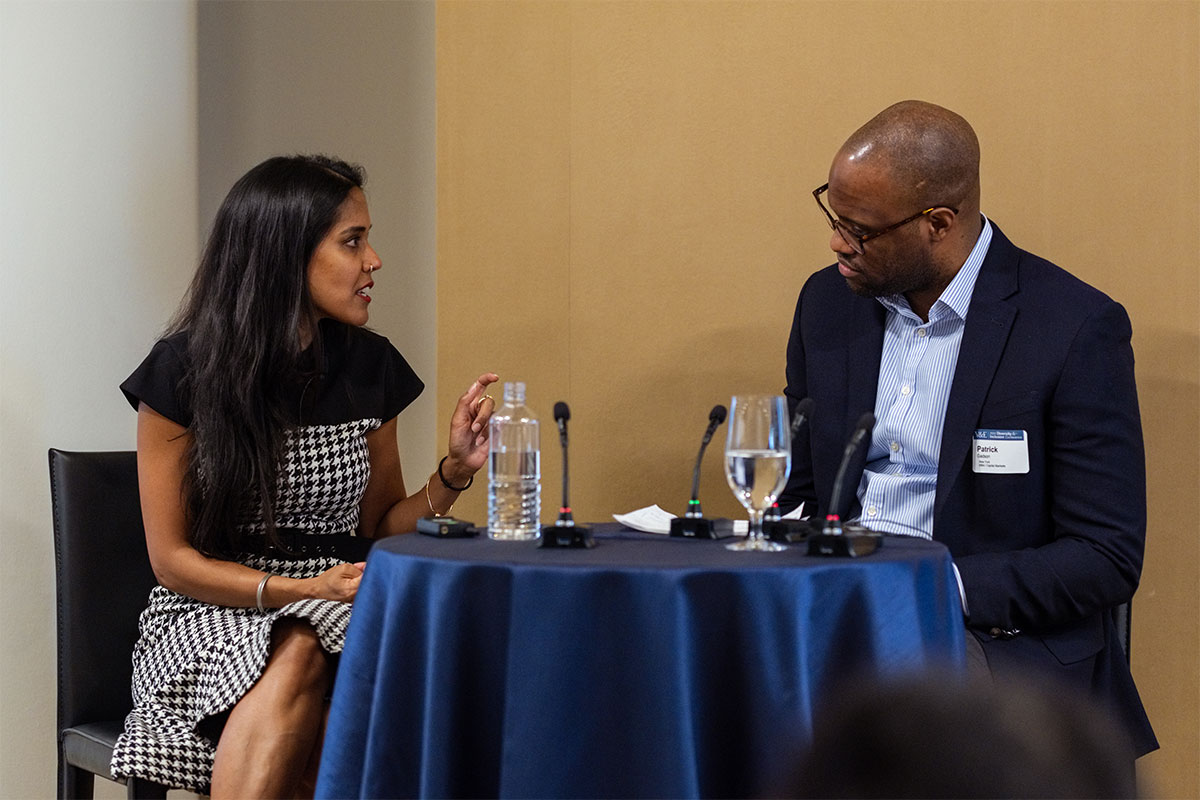
Image © Duy Ta, 2020
One of the diversity, equity and inclusion (DEI) areas that is top of mind in the work that we do here at bci is the critical importance of teaching leaders how to be inclusive in their coaching efforts — especially when coaching team members from equity-seeking communities.
We know from extensive research that professionals from equity-seeking groups are most vulnerable to receiving messages that they need to conform to a white, cisgender, hetero, male normative of leadership behavior. As you may know from my book — and my commitment to (or obsession with?!) teaching authentic leadership — regardless of how well-intentioned, messages of conformity harm our DEI efforts.
Picture the following scenario: there’s a highly skilled woman of color with excellent technical skills on your team, but she repeatedly gets feedback from leaders that she needs to be more vocal, be more animated, self-promote more directly and be more assertive in order to get ahead. Essentially, she constantly receives messages — both directly and indirectly — that she needs to change her preferred ways of behaving to conform to the dominant cultural way of behaving within your organization, in order to advance her career.
Not surprisingly, I’ve heard variations of this scenario at almost every organization bci has worked with. But what I also hear in tandem is, “We are trying desperately to advance women, People of Color and professionals from other equity-seeking communities, but we have retention issues with these groups. What can we do to address our challenges?”
Based on my work, there are a few key must dos for addressing retention issues. This includes teaching and encouraging your leaders to provide inclusive sponsorship and advocacy support to professionals from equity-seeking communities and doing so in a way that encourages authenticity and leverages cultural differences — instead of pushing conformity — while promoting career advancement.
In short, leaders must be competent at inclusive coaching — which is now more important than ever as we begin the return to in-person working. (If you’re interested in learning about how inclusive leadership and inclusive coaching can make a difference in your workplace, here’s a short video where I talked about how leaders can inclusively coach diverse professionals for success.)
It’s so important that we continue to build our inclusive coaching proficiency and cultivate an environment that is built for success. Doing so not only helps our workplaces be more inclusive and dynamic, but also provides a unique opportunity to allow inclusion and success, authenticity and advocacy and more.
And of course, if you’re interested in learning more about bci’s inclusive coaching programming, please feel free to reach out to us.
Sign up for bci’s mailing list to get the latest diversity, equity and inclusion insights right to your inbox every month.
Komal is bci’s Senior DEI Consultant and Mental Health Expert-in-Residence and an accomplished DEI facilitator, coach, and strategist. Komal has over 20 years of experience in providing strategic and advisory guidance and program development across a range of sectors, with a particular concentration in mental health and racial inclusion. Komal is also the founder of Insayva Inc., a social enterprise focused on providing accessible DEI and health equity support to charities and non-profit organizations.
Komal has extensive experience in creating and delivering programming in a range of leadership and DEI areas, including mental health inclusion, psychological safety, empathy, relationship repair, allyship, and cultural competence. She is passionate about driving transformational change in workplaces and has worked closely with bci clients – corporations, professional service firms, health care providers, and educational institutions – to embed cultures of inclusion within their organizations.
Komal has provided one-on-one inclusion coaching to hundreds of senior leaders and brings a unique approach that is informed by her background as a therapist. She is able to expertly handle sensitive conversations and situations and works with leaders to develop the knowledge and skills necessary to advance racial/ethnocultural, gender, and mental health-related equity across teams and organizations. Komal also offers a performance coaching program designed specifically for BIPOC leaders. This program aims to help BIPOC leaders harness their place, position, and identity to thrive in the workplace and beyond. Komal is a qualified administrator of the Intercultural Development Inventory (IDI).
As bci’s Mental Health Expert-in-Residence, Komal offers tremendous expertise around workplace mental health. As a doctoral trained mental health clinician, certified health executive, and registered social worker, Komal has assisted organizations looking to advance employee mental health inclusion and well-being through offering programming on inclusive dialogue, anti-stigma, burnout prevention, psychological safety, resilience, and self-care. Komal is committed to advancing mental health and wellness across the life course; she currently serves on the board of the Alzheimer’s Society of Ontario and previously served on the boards of Children’s Mental Health Ontario and the YMCA of Greater Toronto.
When Komal is not working, you’ll find her painting, cooking, or snuggling with her cats.